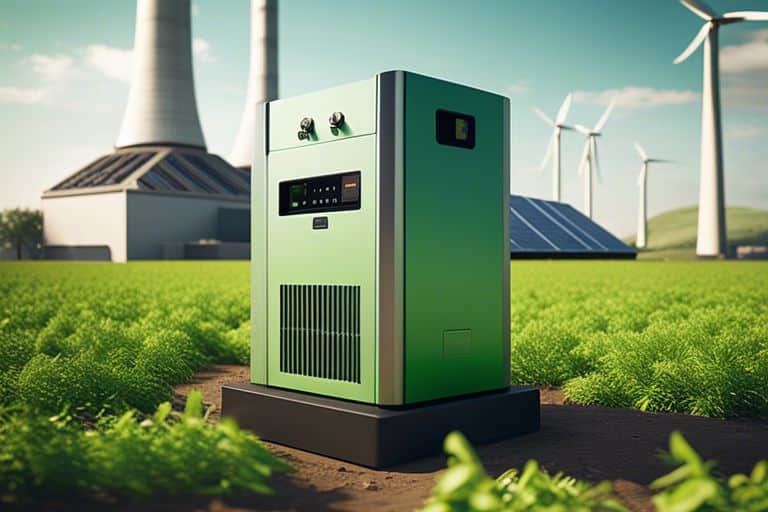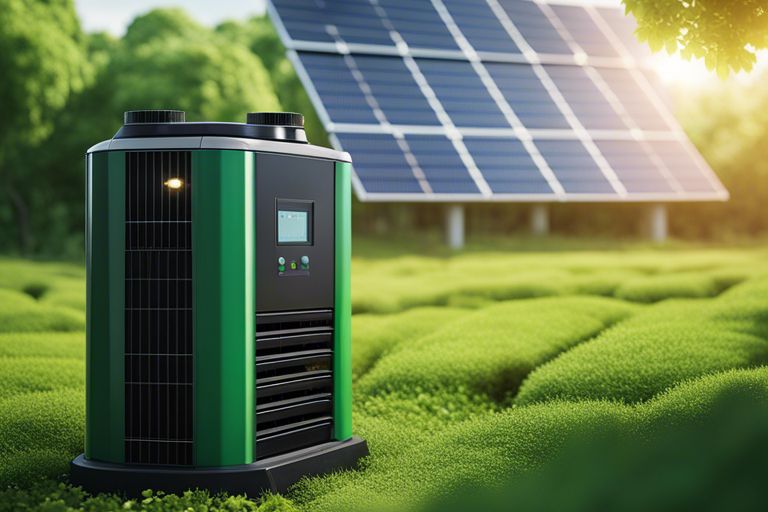There’s a growing interest in sustainable and portable power solutions, with solar generators gaining popularity as an alternative to traditional power sources. SUVs dominate the American landscape, but just as Volkswagen has diversified its electric vehicle lineup to cater to different needs, solar generators offer a unique set of advantages compared to conventional power options. From their eco-friendly operation to their versatility and independence from the grid, solar generators stand out as an innovative and practical choice for powering various devices and appliances. Let’s explore the key features that make solar generators a compelling option in the ever-evolving energy landscape.
Contents
- Understanding Solar Generators
- Core Components of Solar Generators
- How Solar Generators Work
- Traditional Power Sources
- Fossil Fuel-Based Generators
- Grid Electricity and Its Limitations
- Comparative Assessment
- Efficiency and Maintenance
- Advantages of Solar Generators
- Renewable and Sustainable
- Versatility and Scalability
- Challenges and Considerations
- Initial Costs and ROI
- Weather Dependency and Storage Solutions
- The Future of Power Generation
- Technological Advancements
- Potential for Global Energy Shifts
- Summing up
Understanding Solar Generators
Core Components of Solar Generators
An imperative aspect of solar generators is their core components, which include solar panels, a charge controller, a battery, and an inverter. These components work together to capture, store, and convert solar energy into usable electricity.
How Solar Generators Work
Solar generators harness the power of the sun through solar panels, which convert sunlight into direct current (DC) electricity. The charge controller regulates the flow of electricity to the battery, where it is stored for later use. The inverter then converts the DC electricity into alternating current (AC), which can power various electric devices and appliances.
Plus, solar generators are portable and eco-friendly, making them an excellent alternative to traditional power sources. They can be used for camping trips, outdoor events, emergency power backup, or even as a primary power source in off-grid locations. In addition, solar generators produce clean energy without generating harmful emissions, contributing to a greener environment.

Traditional Power Sources
Fossil Fuel-Based Generators
Power generated from fossil fuels such as coal, oil, and natural gas has long been the backbone of traditional power sources. These generators burn these fuels to produce electricity, which is then distributed through power lines to homes and businesses. While they have been reliable sources of power for decades, their environmental impact is a growing concern due to the release of greenhouse gases and other pollutants into the atmosphere.
Grid Electricity and Its Limitations
Traditional grid electricity relies on a centralized system where power is generated at large plants and transmitted over long distances to end-users. This setup can lead to power outages during natural disasters or grid failures, showcasing its vulnerability. Additionally, the grid infrastructure may struggle to keep up with increasing demand, especially during peak usage times, leading to potential limitations in the availability of electricity.
Generators
These traditional power sources have served us well for many years, but advancements in technology have paved the way for more sustainable and efficient alternatives, such as solar generators. By understanding the limitations of fossil fuel-based generators and grid electricity, we can appreciate the unique benefits that solar generators bring to the table.
Comparative Assessment
| Environmental Impact | Efficiency and Maintenance |
| Environmental impact is a crucial aspect when comparing solar generators to traditional power sources. Solar generators produce clean energy, which means they do not release harmful emissions or contribute to air or water pollution. This makes them a more environmentally friendly option compared to fossil fuel-based generators. | One of the key advantages of solar generators is their efficiency and low maintenance requirements. Solar panels have a lifespan of 25-30 years and require minimal maintenance compared to traditional generators that rely on fuel combustion and moving parts. This results in lower operating costs and ensures a more reliable power source in the long run. |
Efficiency and Maintenance
Maintenance of solar generators is minimal as they have fewer moving parts compared to traditional generators. This translates to lower maintenance costs and less downtime for repairs. Additionally, solar panels have a long lifespan, reducing the need for frequent replacements. Regular cleaning of the panels and inspection of connections are typically the extent of maintenance required for solar generators.
Advantages of Solar Generators
Many people are increasingly turning to solar generators as an alternative power source because of their numerous benefits. If you want to understand more about what sets solar generators apart from traditional power sources, check out A Guide To Understanding Solar Power Generators.
Renewable and Sustainable
Sustainable living is becoming a necessity in today’s world, and solar generators play a crucial role in achieving that. Harnessing energy from the sun, solar generators offer a renewable and sustainable power source that does not deplete natural resources or harm the environment. They provide clean energy that reduces carbon footprint and helps combat climate change.
Versatility and Scalability
Advantages of solar generators also include their versatility and scalability. Unlike traditional power sources, solar generators can be used in various settings, from powering up small devices like phones and laptops to larger appliances in homes or businesses. They are scalable, allowing users to expand their solar power system by adding more panels or batteries to meet increasing energy needs. This flexibility makes solar generators a practical choice for a wide range of applications.

Challenges and Considerations
Initial Costs and ROI
An initial challenge when considering solar generators is the upfront costs compared to traditional power sources. However, it’s important to look at the return on investment (ROI) over time. Solar generators can provide substantial savings in the long run as they reduce or eliminate electricity bills and qualify for tax incentives and rebates.
Weather Dependency and Storage Solutions
One of the key considerations with solar generators is their reliance on sunlight. Cloudy days or inclement weather can affect their efficiency. To address this challenge, advanced storage solutions such as batteries can store excess energy generated during sunny periods for use when sunlight is limited. This ensures a continuous power supply even in adverse weather conditions.
Initial costs for solar generators may seem high, but the long-term benefits and savings they offer make them a worthwhile investment for sustainable and reliable power generation.
The Future of Power Generation
Technological Advancements
One of the key factors shaping the future of power generation is the rapid pace of technological advancements in renewable energy sources. Solar generators are no exception, with innovations in battery storage, efficiency of solar panels, and smart grid technology enhancing their performance and reliability.
Potential for Global Energy Shifts
Global energy shifts are on the horizon as countries and industries recognize the need to transition towards sustainable and eco-friendly power sources. Solar generators have the potential to play a significant role in this shift by offering a clean and renewable energy solution that can reduce dependence on fossil fuels and lower carbon emissions.
Summing up
In a nutshell, solar generators offer a sustainable and renewable energy solution that sets them apart from traditional power sources. Their ability to harness the power of the sun without producing harmful emissions makes them environmentally friendly and cost-effective in the long run. Furthermore, their portability and ease of use make them a versatile option for a variety of applications, from outdoor adventures to emergency power backup. By embracing solar generators, we can take a step towards a greener future and reduce our reliance on fossil fuels. Embracing this technology is not only beneficial for the environment but also for our wallets in the long term.

Leave a Reply